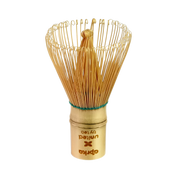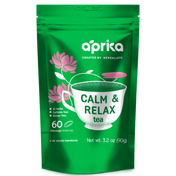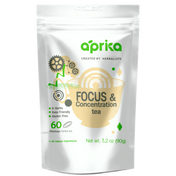Life's daily hustle and bustle can feel non-negotiable, but ending your day with calm and comfort is always within reach. Herbal teas, renowned for their relaxing properties, have gained popularity as a soothing escape to unwind. In this blog, we'll explore how a warm cup of herbal tea can not only ease your stress but also transform your bedtime routine into a peaceful ritual.
What Exactly Are Herbal Teas?
Tea has been a cherished part of our lives for generations, serving as a comforting companion to kick-start the day, relax in the evening, and strengthen bonds with friends and loved ones over heartfelt conversations. But how much do we actually know about tea? Tea comes in a wide range of varieties. The most common distinction is between true teas and herbal teas; let's take a closer look at how these two varieties differ.
True Teas
True teas are beverages derived from the Camellia Sinensis plant. They usually contain natural caffeine and undergo various levels of oxidation and processing methods that set them apart from one another. Some examples of true teas are green tea, black tea, white tea, and oolong tea. These teas, containing natural caffeine, are cherished brews for various occasions.
Herbal Teas
Herbal teas, or tisanes, are not derived from the Camellia Sinensis plant. They are beverages made by infusing various herbs, flowers, bark, spices, or fruits in hot water. People often appreciate the diverse range of herbal teas for bringing a sense of calm and comfort. Herbal teas rarely contain caffeine but have a wide range of health benefits, including easing indigestion, relieving stress, and boosting immunity.
Herbal Teas and Sleep
Herbal teas are increasingly becoming one of the most common ways to achieve a healthy bedtime routine. Many herbal teas contain antioxidants, flavonoids, and phytochemicals that interact with the body's nervous system to induce a state of calmness. These compounds can regulate stress hormones, reduce inflammation, and enhance the production of neurotransmitters like GABA, which play a key role in calming the brain and improving sleep quality.
Sipping a warm cup of tea before sleep helps to create a relaxing ritual, signaling the body and mind to get ready for sleep. The absence of caffeine in herbal teas keeps them from interfering with the body's natural sleep cycle, aiding quality sleep in a gentle yet effective manner.
Best Teas for a Restful Sleep
The variety of herbal teas available today can address almost any issue in the gentlest way possible, ranging from stress relief to indigestion and boosting immunity. When it comes to sleep, there are numerous teas thoughtfully crafted to help you achieve the softest, most restorative sleep possible. Let's look at some blends and calming herbs to consider when creating the perfect bedtime ritual for yourself.
Chamomile Tea
Chamomile tea is one of the most common teas for a good nightly routine. Chamomile is rich in apigenin, a flavonoid that promotes a restful state of mind. Beyond its soothing nature, the delicate chamomile tea offers many health benefits, including support for digestive health, improved hydration, and a natural boost to mood and well-being.
Lavender Tea
The calming and soothing aroma of lavender has long been used in aromatherapy and herbal remedies for sleep. The tea is rich in bioactive compounds, such as linalool and linalyl acetate, which reduce stress and anxiety by interacting with the nervous system to promote a sense of calm. Drinking lavender tea before bed lowers cortisol levels, the hormone associated with stress, allowing the body and mind to relax.
Lemon Balm Tea
Lemon balm tea is beneficial for sleep as it helps calm the nervous system and ease stress and anxiety, often resulting in sleepless nights. This tea is made from the leaves of the lemon balm plant, which belongs to the mint family and is recognized for its gentle citrus scent and natural soothing effects. Lemon balm is rich in bioactive compounds, including rosmarinic acid, which increases the availability of gamma-aminobutyric acid (GABA), a neurotransmitter that encourages relaxation and quiets the mind. This calming influence can facilitate falling asleep and enhance the overall quality of sleep.
Valerian Root Tea
Valerian root tea is known for promoting sleep by serving as a natural, mild sedative that soothes the mind and relaxes the body. Sourced from the root of the valerian plant, this herbal tea contains beneficial compounds such as valerenic acid and isovaleric acid, which help increase the levels of gamma-aminobutyric acid (GABA) in the brain. Moreover, valerian root is recognized for its muscle-relaxing effects, which can further aid in physical relaxation and prepare the body for a good night's rest.
Brewing a Bedtime Blend
Incorporating herbal tea into your bedtime routine is an excellent way to ensure that you get a comforting night of healthy sleep. The practice and ritual of brewing tea are so mindful that they automatically relax your mind. Drinking your sleep tea 45 minutes to an hour before bedtime is recommended for the benefits of the herbs to fully kick in and provide you with a comforting sleep.
It is also important to remember that herbal teas are not a substitute for medical attention. If your sleep issues or stress levels persist, it is always advisable to seek professional medical advice to identify and address any underlying conditions before relying solely on herbal teas as a remedy.








